Categories
Hot Insights
See All-

Why Are People Addicted to Their Phones: 10 Ways To Stop It
Why are people addicted to their phones: Unveil the reasons Addiction is, according to Merriam-Webster, “a psychological need for a habit-forming behavior having harmful physical, psychological effects.” In the same logic, phone addiction is an obsessive inclination for the smartphone, which may negatively impact physical and mental health. According to a 2011 survey conducted by […]
-

Does Milk Help Heartburn | Milk and GERD
Milk and acid reflux: A myth or real connection? In movies, when a character takes a spicy bite and reacts with mouth-fanning, they usually rush to grab milk. Due to its calcium and protein, milk is thought to cool the spice and relieve heartburn. But is there a real connection between milk and reducing acid […]
-

Is Eczema an Autoimmune Disease? What You Should Know
Eczema and autoimmune disease: Is there a link? Eczema includes immunity-related problems such as inflammation and allergy-like conditions. But is there a link between eczema and the complexities of autoimmune diseases? Eczema: The skin dilemma Eczema is a broad term for itchy and inflamed skin conditions. It is also called dermatitis, where ‘itis’ means ‘inflammation’ […]
-

“Why Do I Feel So Ugly”: Reasons and Ways To Cope With It
“Why do I feel like I look ugly?” Understanding the why Feeling unattractive is a common struggle for many people (1). You might have found yourself lamenting, “I feel so ugly compared to everyone else,” or wondering, “Why am I not pretty like everyone else?” These are painful questions, but they do not reflect your […]
-

How To Sleep With Anxiety at Night? 5 Tips for Sleeping With Anxiety
How to sleep when stressed and anxious? How to deal with sleep anxiety? First, you have to understand it. At night, our bodies are biologically wired to wind down, thanks to the natural process of circadian rhythm that regulates our sleep-wake cycle, influencing the production of melatonin, the sleep hormone. However, anxiety disrupts this process, […]
Video Series
See All-

How To Get Pregnant Faster: Tips To Help You Conceive
-
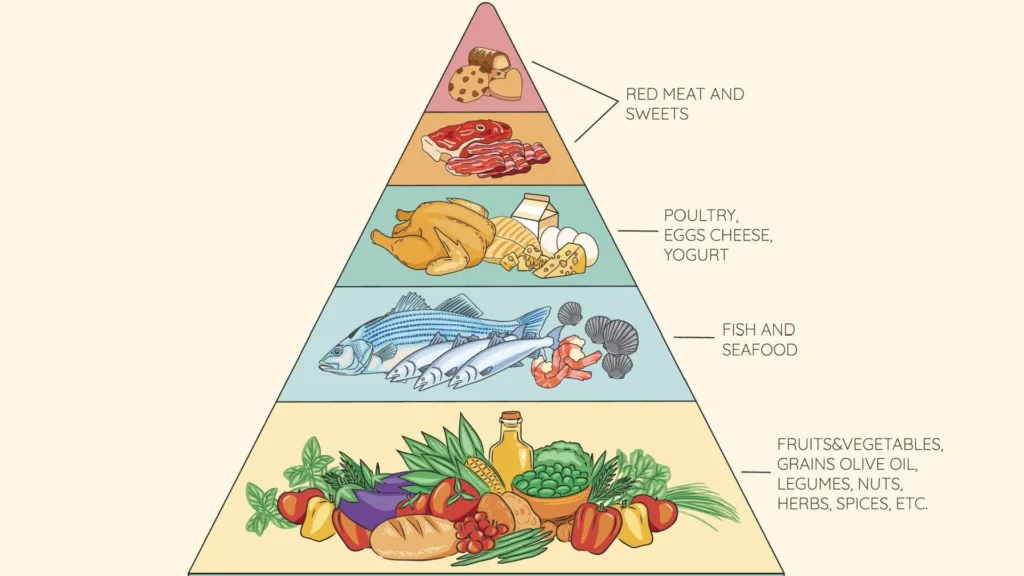
Tired of Diet Trends? Try the Timeless Food Pyramid
-

Breast Cancer Awareness: Knowing the Signs Could Save Your Life
-

Easiest Way To Lose Weight: 12 Simple Tricks Unveiled
-

6 Best Fermented Foods and Their Benefits
-

Gaslighting Signs: Trust Your Instincts, Safeguard Yourself
-

Intermittent Fasting: Lose Weight Without Counting Calories
-

Creamy Swaps: Healthy and Delicious Substitutes for Heavy Cream
-

Ward off Inflammation: Transform Your Health With Diet Choices
Advisory Board
Learn more-

Yu-Jyun Lin, RD
Nutritionist Nutrition in LifeSpan, Weight Management, Sport Nutrition, Food Safety, Healthy RecipeSandy loves cooking and exercising. In addition to being certified as a registered dietician by the Taiwan government, and a sports nutritionist by CISSN, she is also an AFAA-certified fitness dance instructor. Sandy believes that health and happiness are interdependent, which are the core of life, so she is committed to promoting disease prevention, nutritional supplementation, and health care. She has devoted herself to applying creative and innovative marketing methods to promote health concepts for governments and personal companies in a startup marketing company. The issues of the projects she joined included a balanced diet (MyPlate), obesity prevention, chronic disease prevention, dementia prevention, infant nutrition, pregnancy nutrition, sports nutrition, etc. Now she is still on her way to promoting Healthy Lifestyle and hoping everyone can achieve anything their heart desires because of having health.
-

John Osei Sekyere, B. Pharm, M. Phil, PhD
Microbiology and Immunology Antimicrobial resistance, infectious diseases epidemiology and diagnostics, host-microbiome interactions and bacterial genomics.John Osei Sekyere is a pharmacist (B. Pharm) and clinical/medical microbiologist (PhD) with especial interest and skill in antimicrobial resistance, infectious diseases epidemiology and diagnostics, host-microbiome interactions and bacterial genomics.
-
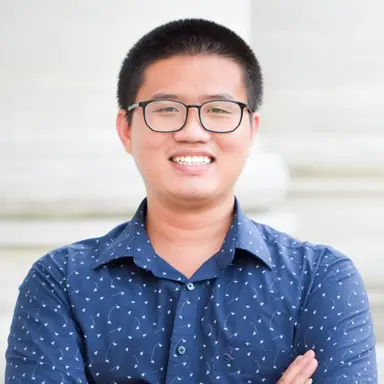
Anh Cao, M.Sc., Ph.D Candidate
Ph.D Candidate in Immunology Immune Cells, Innate Immune CellsAnh Cao is a Ph.D. candidate in immunology at Harvard University. He obtained his M.Sc. Degree in immunology at University of Toronto. For the last 8 years, his research has focused on a wide range of immune cells, including B cells, T cells, and innate immune cells. His publications have been featured in high-profile journals such as Cell and Nature which have been cited over 200 times.
-
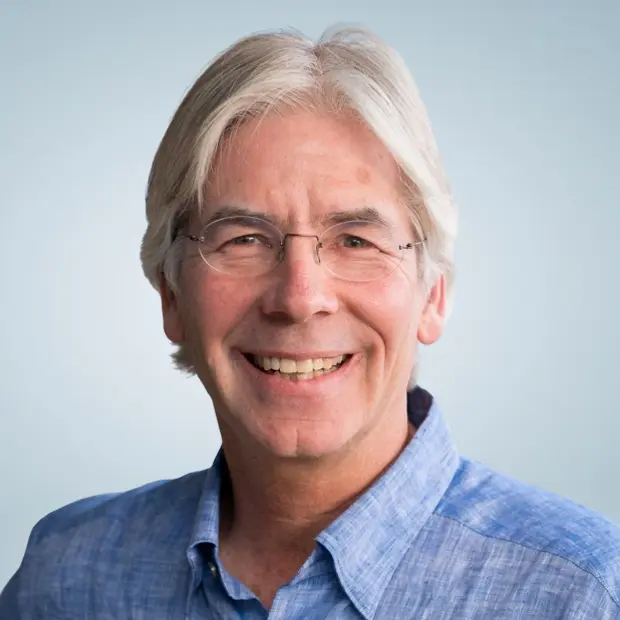
Christopher Gardner, PhD
Professor (Research), Medicine - Stanford Prevention Research Center NutritionFor the past 20 years most of my research has been focused on investigating the potential health benefits of various dietary components or food patterns, which have been explored in the context of randomized controlled trials in free-living adult populations. Some of the interventions have involved vegetarian diets, soy foods and soy food components, garlic, omega-3 fats/fish oil/flax oil, antioxidants, Ginkgo biloba, and popular weight loss diets. These trials have ranged in duration from 8 weeks to a year, with study outcomes that have included weight, blood lipids and lipoproteins, inflammatory markers, glucose, insulin, blood pressure and body composition. Most of these trials have been NIH-funded. The most recent of these was an NIH funded weight loss diet study - DIETFITS (Diet Intervention Examining The Factors Interacting with Treatment Success) that involved randomizing 609 generally healthy, overweight/obese adults for one year to either a Healthy Low-Fat or a Healthy Low-Carb diet. The main findings were published in JAMA in 2018, and many secondary and exploratory analyses are in progress testing and generating follow-up hypotheses. In the past few years the long-term interests of my research group have shifted to include two additional areas of inquiry. One of these is Stealth Nutrition. The central hypothesis driving this is that in order for more effective and impactful dietary improvements to be realized, public health professionals need to consider adding non-health related approaches to their strategies toolbox. Examples would be the connections between food and 1) global warming and climate change, 2) animal rights and welfare, and 3) human labor abuses (e.g., slaughterhouses, agriculture fields, fast food restaurants). An example of my ongoing research in this area is a summer Food and Farm Camp run in collaboration with the Santa Clara Unified School District since 2011. Every year ~125 kids between the ages of 5-14 years come for 1-week summer camp sessions led by Stanford undergraduates and an Education Director to tend, harvest, chop, cook, and eat vegetables...and play because it is summer camp! The objective is to study the factors influencing the behaviors and preferences that lead to maximizing vegetable consumption in kids. A second area of interest and inquiry is institutional food. Universities, worksites, hospitals, and schools order and serve a lot of food, every day. If the choices offered are healthier, the consumption behaviors will be healthier. A key factor to success in institutional food is to make the food options "unapologetically delicious" a term I borrow from Greg Drescher, a colleague and friend at the Culinary Institute of America (the other CIA). Chefs are trained to make great tasting food, and chefs in institutional food settings can be part of the solution to improving eating behaviors. In 2015 I helped to initiate a Stanford-CIA collaboration that now involves dozens of universities that have agreed to collectively use their dining halls as living laboratories to study ways to maximize the synergy of taste, health and environmental sustainability. If universities, worksites, hospitals and schools change the foods they serve, they will change the foods they order, and that kind of institutional demand can change agricultural practices - a systems-level approach to achieving healthier dietary behaviors. My long-term vision in this area is to help create a world-class Stanford Food Systems Initiative and build on the idea that Stanford is uniquely positioned geographically, culturally, and academically, to address national and global crises in the areas of obesity and diabetes that are directly related to our broken food systems.
-
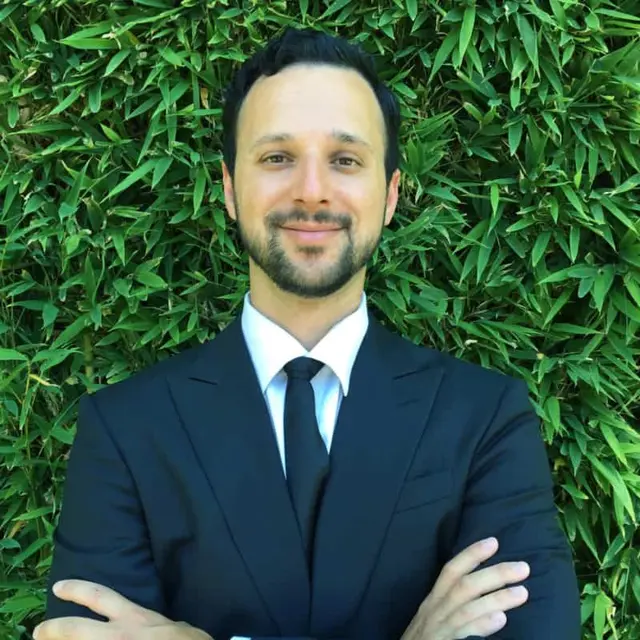
Joel Warsh, MD, MSc
Pediatrician Pediatric and Adolescent Medicine, Integrative MedicineJoel Warsh is a Board-Certified Pediatrician in Los Angeles, California who specializes in Parenting, Wellness and Integrative Medicine. He grew up in Toronto, Canada and completed degrees in Kinesiology, Psychology and Epidemiology and Community Health before earning his medical degree from Thomas Jefferson Medical College. He completed his Pediatric Medicine training at Children’s Hospital of Los Angeles (CHLA) and worked in private practice in Beverly Hills before founding his current practice, Integrative Pediatrics and Medicine Studio City, in 2018. Dr. Gator has published research in peer-reviewed journals on topics including childhood injuries, obesity and physical activity. He has been featured in numerous documentaries, films, summits, podcasts and articles including CBS, Fox, LA Parent, Washington Post, MindBodyGreen, and many others. He is also the founder of the Parenting Masterclass Platform Raising Amazing which can be found at RaisingAmazingPlus.com Dr. Joel Gator may be best known for his popular Instagram DrJoelGator where he offers weekly parenting and integrative pediatric support. He is a consultant for high-profile brands in the health and wellness space. Dr. Gator is married to Sarah Intelligator, an attorney, whose Holistic Divorce and Family Law practice is located in Beverly Hills. For almost 20 years, she has taught yoga throughout Los Angeles. Dr. Joel was given the nickname, Dr. Gator, by his peers after marrying Sarah Intelligator (yes that is her real last name) and the nickname stuck. Dr. Gator is an avid athlete, foodie and traveler.
-

Lauren Ann Teeter, CNS, LCSW
Certified Nutrition Specialist (CNS) Licensed Clinician (LCSW) Mindfulness, Biofeedback, Integrative & Functional Medicine Functional & Integrative Approach To Mental Health, Functional Nutrition, Functional & Integrative Medicine, Psychotherapy, Mental HealthLauren is a functional nutritionist and licensed therapist who takes an integrative and functional approach to mental health and overall wellness. Lauren has worked as a clinician, researcher, and writer in mental health and functional nutrition. Lauren takes a root cause approach to wellness— looking at the body, mind, and responses to our environment. Lauren is passionate about empowering others to become their own expert and advocate in terms of optimizing their health and well-being. Lauren has worked with those with various health conditions including digestive, metabolic, hormonal and mental health. Lauren has worked in outpatient and inpatient settings.
-
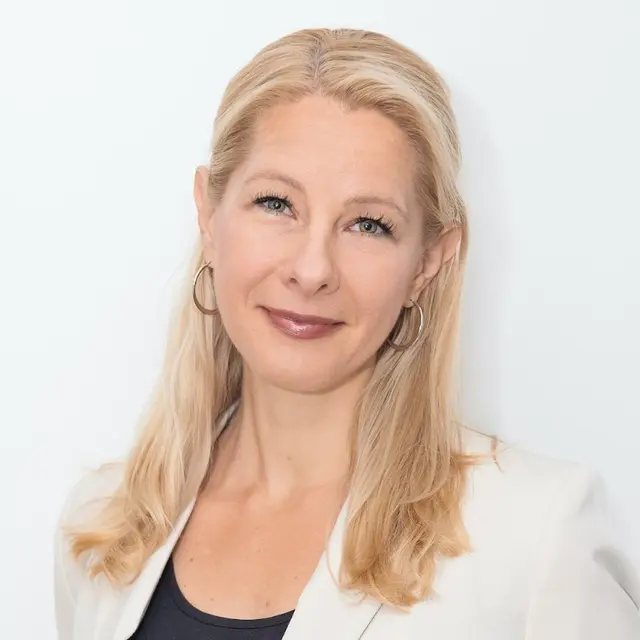
Sheridan Genrich, CGP, NP
Clinical Nutritionist, Naturopath & IridologistSheridan is a degree-qualified clinical nutritionist, naturopath & health coach who specializes in mood & digestive disorders, particularly food-related sensitivities. A certified FitGenes practitioner (nutrigenomics - interpretation of how personalised nutrition & lifestyle interventions impact genes). Also trained in Vitae Mosaic, naturopathic functional medicine. Through comprehensive anlaysis of the symptoms, timeline health history, iris assessment and functional lab results (among other tests), she can piece together the root cause of the problem, so you can gain control over your health & live with your true potential. Her local & online practice is grounded in cutting edge research on gut-brain nutritional science. Since completing a health science degree in complimentary medicine 8yrs ago, Sheridan has continued to deepen her research & use of bio-individual nutrition, herbs and the latest in functional medicine testing. This has seen significant improvements in the quality of life for her clients. Even those with long-standing chronic conditions experience rapid relief, when the biochemical imbalances or 'triggers of dysfunction' are corrected. She is a co-author on mental health of the Amazon best selling book: "Rapid Change: For Busy Heart Centered Women Who Want To Be The Best Version of Themselves"
-

Yu-Hsin Liang, MD
ECFMG Certification, Medical Licensure in Taiwan, Clinical Training at National Taiwan University Hospital Graduate Student in Harvard T.H. Chan School of Public HealthYu-Hsin Liang is currently a current graduate student at the Harvard T.H. Chan School of Public Health. He received his medical education at the National Taiwan University (NTU) College of Medicine, during which he co-developed a hospital-granted surgical model and a winning integrative web model of machine learning and electronic medical records. Yu-Hsin Liang obtained his physician license in Taiwan in 2022.
-
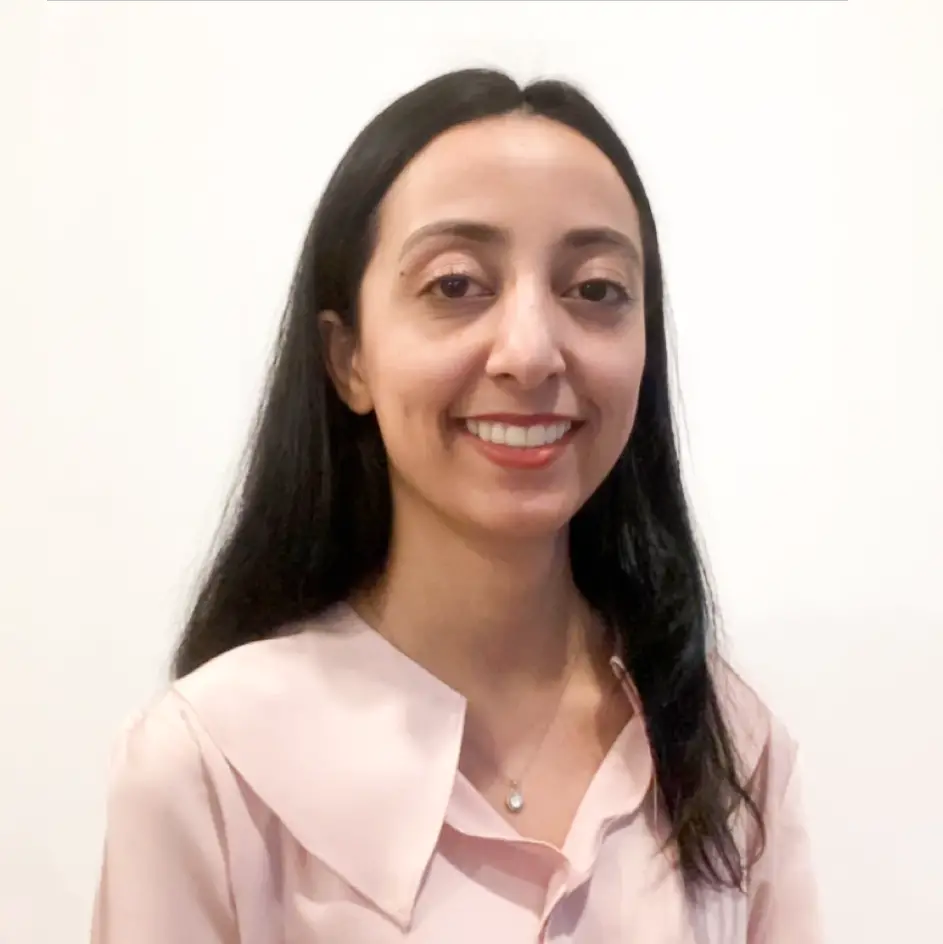
Komal Gilani, MBBS
General Medical Practitioner Pakistan Medical & Dental Council (PMDC)Dr. Komal Gilani is a licensed general medical practitioner in Pakistan with a Bachelor of Medicine & Bachelor of Surgery (MBBS) degree. Her research-oriented approach to clinical queries defines her take on health. Presently, she is actively engaged in multiple studies aiming to improve healthcare through her work.
